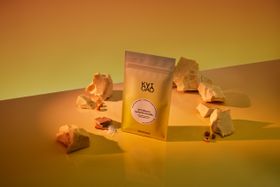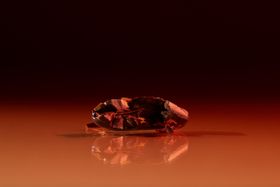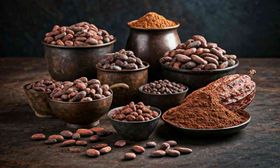Is Chocolate an Aphrodisiac? The Sweet Truth Revealed
You’ve heard chocolate can stir up desire, but is there any real science behind that idea? Let’s uncover what’s myth and what’s fact.
Published April 5, 2025

Can a piece of chocolate really spark desire? The idea has been around for centuries—and it’s still a hot topic. Some say chocolate is a love potion, while others say it’s just a sweet treat. So what’s the truth?
In this article, we’ll break down what actually makes a food an aphrodisiac—and whether chocolate fits the bill. From mood-boosting compounds to the power of scent and texture, we’ll explore how chocolate might affect your mind, body, and maybe even your libido. Let’s dig in.
» Boost your mood with our 75% Dark Kokoa Kamili chocolate bar
What defines an aphrodisiac?
An aphrodisiac is a substance believed to stimulate sexual desire. Various biological and psychological mechanisms contribute to whether a food can enhance libido.
Some compounds may influence hormone levels, neurotransmitter activity, or blood circulation, all of which play a role in sexual function. Others may simply enhance mood, making individuals more receptive to intimacy.
Research suggests that antioxidant-rich foods support the gut-brain axis, which influences mood and reproductive function [1]. Conversely, high sugar and fat intake can lead to inflammation, which may negatively impact both mood and sexual health.
» Unlock the Power of Antioxidants with Cacao
The mood-boosting compounds in chocolate
Chocolate contains naturally occurring compounds that have been linked to mood, pleasure, and arousal. Let’s take a look at some of the most studied ones:
Phenylethylamine (PEA): Known as the “love chemical,” PEA stimulates the hypothalamus to release serotonin and endorphins, which enhance mood and may contribute to increased sexual desire.
Tyramine: This compound is linked to the release of dopamine, a neurotransmitter that plays a role in pleasure and motivation.
Methylxanthines (including theobromine and caffeine): These compounds have stimulating effects that can increase alertness and energy, potentially boosting mood and interest in intimacy.
Cannabinoid-like substances and N-acyl ethanolamines: These fatty acids interact with the brain’s endocannabinoid system, promoting a sense of relaxation and pleasure, which may contribute to chocolate’s aphrodisiac reputation.
» Find out more about cacao's theobromine health benefits
Who benefits most from chocolate’s sensory effects?
Some studies suggest that women may be more sensitive to the mood-enhancing effects of chocolate than men.
Women tend to consume more chocolate, and some research has linked chocolate consumption with higher sexual function scores[2]. However, other studies have found that increased chocolate intake is associated with lower interest in sex.
Hormonal fluctuations, particularly those related to menopause, may also influence how chocolate affects libido[3]. Younger women may be more responsive to its mood-boosting properties, while older women may experience a diminished effect due to hormonal changes.
» Learn more about how cacao impacts hormonal balance
The sensory experience of chocolate
Beyond its chemical composition, chocolate’s ability to stimulate the senses may play a significant role in its reputation as an aphrodisiac:
Taste and texture: The creamy, rich mouthfeel of chocolate can be incredibly pleasurable, enhancing the overall experience.
Aroma: Simply smelling dark chocolate has been shown to stimulate the release of ghrelin, a hormone that influences appetite and may also impact sexual desire.
Emotional associations: Chocolate is often associated with romance, comfort, and indulgence, which can create a psychological boost that enhances intimacy.
» Does cacao have health benefits, or is it just a great sensory experience?
Does the type of chocolate matter?
Not all chocolate is created equal when it comes to potential mood-boosting effects. The cocoa content plays a major role:
Dark chocolate: Higher in cocoa solids, dark chocolate contains more antioxidants, theobromine, and PEA, making it the best choice for potential aphrodisiac effects[4].
Milk chocolate: Contains cocoa, but also includes dairy and added sugar, which may diminish the beneficial effects of cocoa’s bioactive compounds.
White chocolate: Lacks cocoa solids entirely, meaning it does not provide the same potential benefits as dark or milk chocolate.
» Dark chocolate vs Milk chocolate: which is better?
How processing affects chocolate’s mood-enhancing potential
The way chocolate is processed can impact its chemical composition:
Fermentation and drying: These steps can reduce polyphenol activity, which may decrease chocolate’s antioxidant potential[5].
Roasting: Low-temperature roasting with humid air is ideal for preserving bioactive compounds.
Milk and sugar addition: Adding milk can decrease the bioavailability of flavanols, while excessive sugar content can contribute to inflammation, counteracting chocolate’s potential benefits.
» Discover the ancient art of traditional chocolate production
The best way to consume chocolate for mood and well-being
To maximize chocolate’s potential effects on mood and pleasure:
Choose chocolate with at least 65% cocoa content to benefit from higher antioxidant and theobromine levels.
Consume about 30 grams (one ounce) per day, as this portion provides ample bioactive compounds without excessive sugar or fat intake.
Pair chocolate with natural flavor enhancers like nuts, coffee, or spices for added sensory pleasure.
How Kaicao chocolate compares to mass-market brands
Kaicao chocolate offers premium, high-quality products rich in bioactive compounds linked to mood and sensory pleasure. Notable examples include:
Single Origin 65% Dark Chocolate with Arabic Coffee and Cardamom: This variety provides a deep, aromatic experience with additional antioxidants from coffee and cardamom.
Smashed Medjool Date Covered in 100% Chocolate with Cocoa Nibs: This treat combines single-origin cocoa with potassium-rich dates, which may support blood flow to reproductive organs.
Unlike many mass-market brands, Kaicao products focus on single-origin cacao and natural sweeteners like dates and bananas, ensuring a high-quality experience without unnecessary additives.
Disclaimer: The chocolate information provided by Kaicao is intended for educational purposes related to chocolate products. We encourage you to embrace the chocolate experience, savor each moment, and explore the world of chocolate with passion.
References
- https://www.researchgate.net/publication/382528774_A_Comprehensive_Review_on_Chocolate_as_Aphrodisiac_Food_and_Some_Ingredients_make_Chocolate_more_Aphrodisiac_2021
- https://www.researchgate.net/publication/227953607_Chocolate_and_Women's_Sexual_Health_An_Intriguing_Correlation
- https://pmc.ncbi.nlm.nih.gov/articles/PMC7551911/
- https://biobeat.nigms.nih.gov/2020/02/the-chemistry-of-chocolate/
- https://pmc.ncbi.nlm.nih.gov/articles/PMC7761840/#:~:text=Several%20studies%20have%20well%20established,Toro%2DUribe%20et%20al







